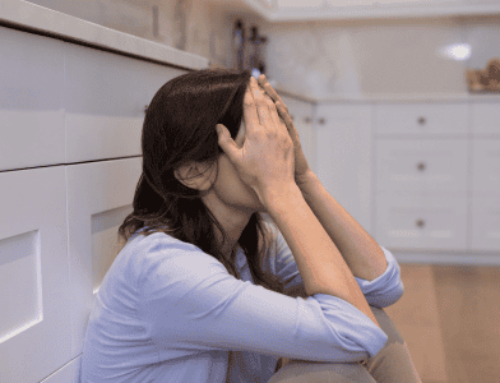How can healthy be unhealthy?
We all have good intentions when we decide to make some healthy changes. It could be aiming to drink more water, eat more fruit, go to bed earlier, floss your teeth every night (who am I kidding) or we might even start a special diet or nutrition program. It’s perfectly normal and okay to want to be healthier or fitter and work towards this. However, for some individuals, this desire can lead towards a very unhealthy relationship with food and their own body.
Please don’t misunderstand me. I fully support healthy eating, come on, I’m a dietitian, it’s kind of how I make a living. But not if it’s in a way that is compromising your overall wellbeing and not at the cost of your mental health. I love food and I love people, and I’m passionate about bringing the two together in peace!
How do I know if my healthy eating habits have become unhealthy?
You may start to experience a consistent overwhelming feeling of worry about food that starts to interfere with your life through anxiety and even social isolation (and not the good kind). Every mealtime can be flooded by anxious thoughts around whether or not you’re making the right choice. These thoughts are confusing, frustrating, negative and leave one feeling hopeless and exhausted. We call this food anxiety.
These are some signs that you may be experiencing food anxiety.
You feel out of control with food
This could be feeling powerless to say ‘no’ to eating food, to stop eating when you’re full or being out of touch with your hunger levels. More on this here. It could also be feeling overwhelmed by how busy life is and then the thought of having to organise food but not having the capacity is making you feel anxious or stressed. Check out “7 Ways to Reduce Stress Around Food”.
You avoid certain foods or food groups without a medical reason
Some foods might stir up stress for you more so than others. This could be because you associate them with negative health or weight implications that you read or heard somewhere. Maybe you’ve had a bad experience with this food, or you feel so confused about nutrition that it’s easier to just avoid some foods altogether.
You have an ‘all or nothing’ mindset when it comes to healthy eating
Sometimes we get caught up in ideals and when we don’t achieve what we set out to; we give up and feel like a failure. You may have an all or nothing mindset if you find yourself in a cycle of restriction, starting “diets”, only to fail and then overindulge, only to feel guilty and promise yourself you’ll try harder next week.
You regularly skip meals
Fasting is a lifestyle or religious choice that some individuals prefer and can maintain. What I’m referring to here could be skipping meals to “make up” for overeating at other times or skipping meals when you actually feel hungry or would usually eat.
You spend a lot of time thinking, planning and preparing food
Don’t get me wrong, planning and preparation is a key part of healthy eating. However, it should not consume hours out of your week. It should also be a habit that helps reduce stress levels and not make you feel more anxious or overwhelmed.
You feel confused about nutrition
You do a lot of reading, researching and googling in search of answers but you’re left feeling more confused than ever. You want to do the right thing but feel overwhelmed by all this knowledge and conflicting information.
You feel anxious when you don’t have complete control over food
You might feel very apprehensive going out to restaurants, friends or family’s houses and attending special occasions. You don’t like not knowing what you will have available to eat or not knowing what’s in the food.
What should I do?
By now you might be thinking, okay so I have a bit of anxiety around food, should I get help, is it really a problem?
Food anxiety is very individual in its expression, but if left undealt with can lead to more serious consequences in the long-term.
Why should I address my food anxiety?
You could experience nutritional deficiencies
Especially if you are avoiding a particular food group, you are most likely missing out on key nutrients for health and wellbeing. You may also be underestimating how much you need to eat and therefore not providing your body with enough fuel for your activity levels. This can have long-term implications on your metabolism and other bodily functions.
For the sake of your social life
Social isolation isn’t great for anyone’s mental health. Food anxiety may be preventing you from building relationships with friends and family especially if you avoid these situations due to fears of food. It could also be that you are preoccupied by anxious thoughts of food that you struggle to enjoy these occasions and focus on what really matters, which is connecting with those around you!
For the sake of your mental health
I’m not a mental health professional. You may need support from a psychologist to manage conditions such anxiety and depression. Stress around food may be secondary to another mental health disorder and can also exacerbate anxiety. Finding a balance with food and feeling confident in your choices can help reduce food stress. Here are 6 easy meal ideas for when you are feeling low.
Because it’s not sustainable long-term
I would imagine that if asked the question “Is this what you want your relationship with food and eating habits to look like in 5 or 10 years from now?” most of those suffering with food anxiety would answer no. Even though change can be daunting, there is a better way to be a healthy eater without the constant worry.
Okay, so you have food anxiety and need help. Well that’s what I’m here for!
How can I help?
Your diet is never going to be perfect.
This may be hard hitting for the inner perfectionist in you, but you need to hear it now! I’m a dietitian, literally an expert in nutrition and dietetics and my diet is not perfect. No one food is going to cause any dramatic change to your life or to your body. You are okay just as you are in this moment and eating or not eating a food won’t change that. Letting go of the idea of perfection and focussing on progress are the first steps on your journey to releasing food anxiety. It won’t be easy, and you will feel challenged but remember, we’re talking about healthy habits and reduced stress to last a lifetime! Check out these top 3 tips to get started.
We can help by:
- Understanding your individual challenges and creating a tailored pathway.
- Establishing realistic expectations and achievable goals.
- Providing you with evidence-based education so that you can understand and be more confident in your food choices.
- Taking it one step at a time with a positive focus, because old habits die hard.
- Support and encourage you every step of the way.
Anxiety can feel like being repeatedly kicked in the ovaries (or guts if you’re a dude) without anyone around you even noticing. If you think this maybe you, you are not alone. Many people feel this way about food from all walks of life and with all different types of health goals.




